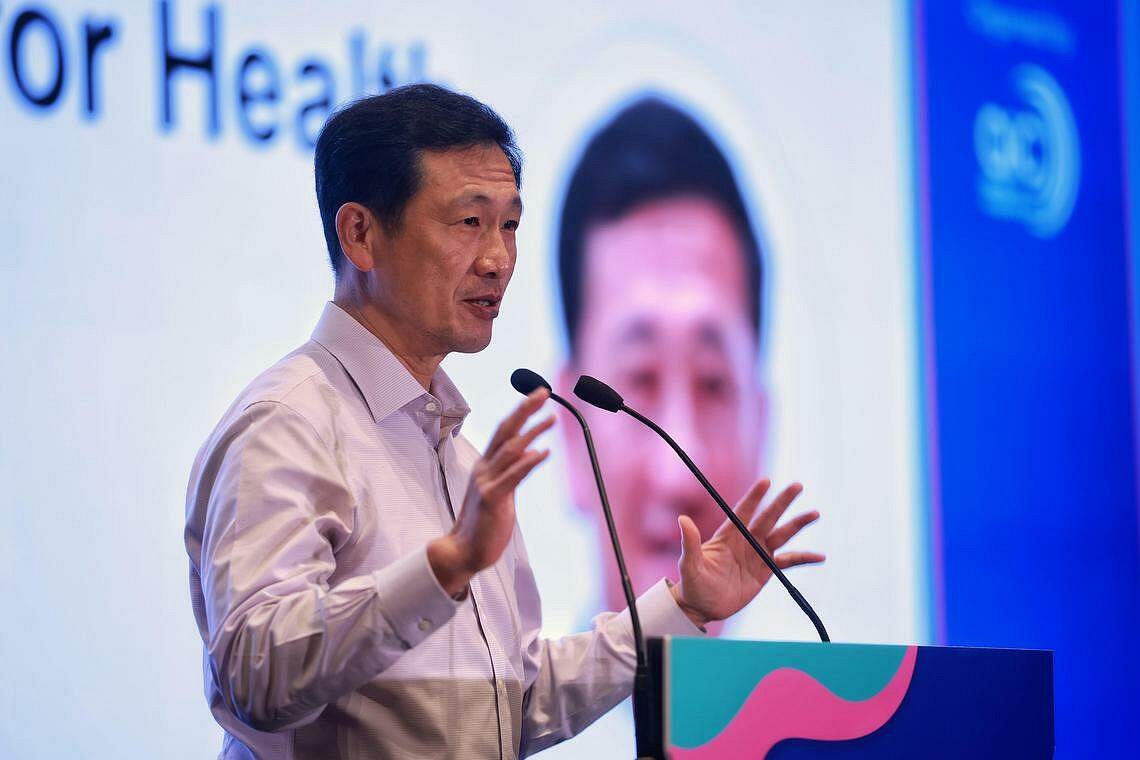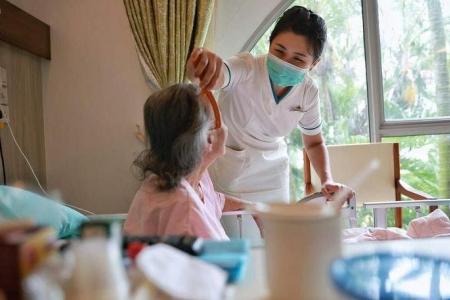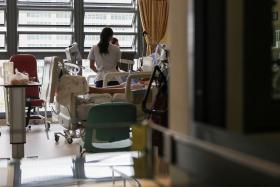MediSave can be used for palliative care from July, home care from Oct
Those who are being medically cared for at home will be allowed to dip into their MediSave account to pay for home medical and nursing providers from Oct 1.
Announcing this, Health Minister Ong Ye Kung said his ministry will allow medical service providers funded and supported by the Ministry of Health – such as the Home Nursing Foundation (HNF) – to submit claims for their homebound clients, allowing them to tap the national medical savings scheme MediSave.
This is similar to how they are able to do so for medical services in clinics.
When the scheme stabilises, it will be extended to other home medical and nursing providers, he said.
The expansion is part of a larger effort to encourage seniors to live at home for as long as possible, which is much better for them emotionally and medically.
Speaking at the Agency for Integrated Care (AIC) Community Care Work Plan Seminar at the Sands Expo and Convention Centre on Monday, Mr Ong also announced that the Government will be extending subsidies and MediSave for video-consultations for home palliative care services from July 1.
This change will financially support telehealth, which is a very useful tool for community care providers, he pointed out.
MOH will progressively extend healthcare financing to support more telehealth services, said Mr Ong, adding that later in 2023, subsidies and MediSave will be extended for teleconsultations for chronic disease management.
The number of people in Singapore receiving community palliative care, also referred to as hospice care, has increased by 30 per cent over the past five years, with about 8,800 terminally ill people receiving such care in 2022.
Said Mr Ong: “We need to and can do more to help and support our seniors to age in communities healthily and happily, with a social circle, surrounded by friends and engaged in activities.”
Hence, the sector will need increased resources, whether it is to recruit more manpower, expand the scope of Active Ageing Centres’ (AAC) work, or promote volunteerism or integrated services.
“This goes beyond what MOH is able to do, and is an issue currently under deliberation by the inter-ministry Forward SG exercise,” he said.
“We recognise that to decisively address our demographic change, and to pre-empt the rapid rise of frailty and other age-related diseases, the Government will need to prioritise spending in this area and develop a major national programme that is as significant as Healthier SG,” he said.
Healthier SG is the nation’s new preventive care strategy.
By 2026, Singapore will be a “super-aged” society, with 21 per cent of the population aged 65 and above, he noted. In anticipation of that, many policies have been adjusted, and more friendly streets and living environments have been built.

Get The New Paper on your phone with the free TNP app. Download from the Apple App Store or Google Play Store now


